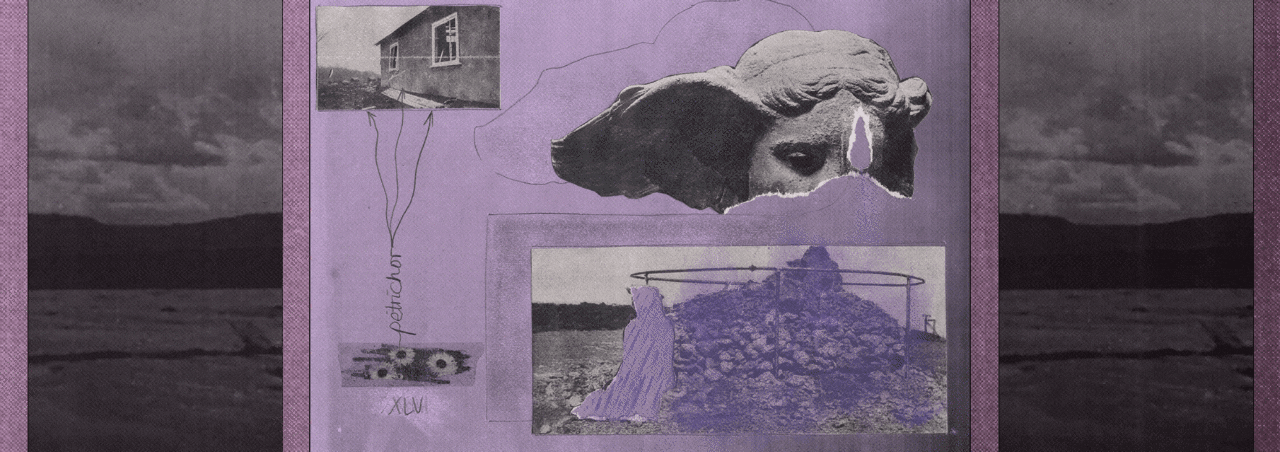
Guinotte Wise – Scattered Cranes (Pski’s Porch, 2017)
On the back cover, Guinotte Wise demystifies the title for us without pretention: “I like cranes, both the feathered ones and the giant racked work vehicles. So I scattered a few through this collection.” It’s a Leaves of Grass type move, a loose pun that is less a sweeping theme and more a minor pet motif. They do show up often, flying, cranking, lifting themselves, lifting other things. In the book’s title drop, which comes remarkably early in this considerable 120+ page collection, the cranes are a magical realist takeoff, the kind of carnivale best served by the scions of the West.
Speaking of the West, Scattered Cranes encompasses an atlas worth of it. Death Valley is brought to life, obscure landmarks like Sardine Lake are unpacked, and all those drive-in dates you’ve romanticized in your personal dossier are unveiled as the sloppy sweat fogs they really were. In his other mode, Wise is a sculptor of repurposed junkage, but here his shapes only occasionally resemble the Great Forbears (the neo-beat sprawl “John Settle” and the Dream Songs informed “Long Black Wall”). Most often, he lays his poems out to read with the briskness of one act plays; even his major graphic tick, a fused “œ” in mundane words like “toes” is an exercise in space usage. His grainy lookbacks at Midwestern maturity recall B. H. Fairchild, and a reader might be forgiven for a few remembrances of those ten good poems Bukowski managed to pen, but, unlike Hank, Guinotte Wise seems to actively enjoy life’s joyful miseries.
In today’s sordid milieu of fuckboys and masculine toxins, Wise’s poetry personifies a modern rarity in male poesy: the lovable rogue. His Tulsa boyhood bleeds into his vagabond adolescence; we experience the many jobs he’s held in this life through flashes forward and back, a mess of youthful trysts, the comedy of boyish folly, and the wisdom that such experiences sometimes bestow…that is, if the poet wants to hear. His retelling of ancient dalliances come with the cautionary nostalgia of age, except when they’re served as wry antic fables of what Adrian C. Louis called the “ghosts of groin bone.” For instance: the collection’s longest poem, “Blizzard of Ought Naught,” spends seven pages sending the speaker through a snowy Chicago deluge in the hopes of a snug tryst in a blanket fort. Not all hero’s journey need be lofty.
With its shifts in experience and nods to a more rustic coming of age, Scattered Cranes comes to us in an era where the old masculinity is often seen is more a trap than a liberation, something no longer fit to fly but only to carry the burden of everyman ennui in denial. Bucking this trend with a backward glance that reflects forward, Guinotte Wise’s ability to spin a story in ways sardonic, cynical, and serendipitous, elevates all his cranes, feathered or not, to the endless sky of the Great American Desert.
Two poems from Scattered Cranes, “Mount Ne” and “Stork Still Crane,” appeared in petrichor #3.
Wise’s personal site, showcasing his writing and sculpture, can be found here.
Back
